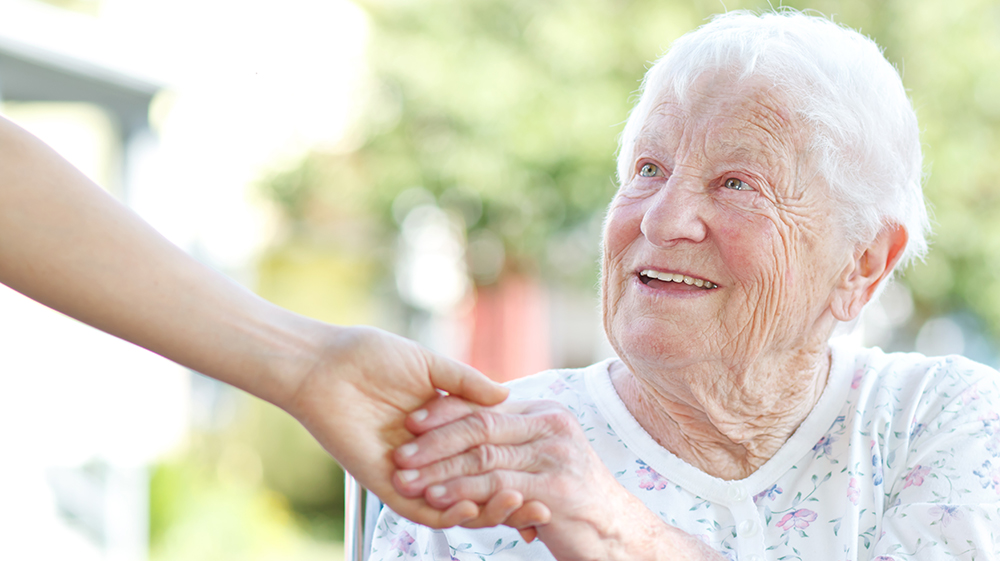
“In France, the EHPAD has been based on a very industrial model of organisation for the last forty or fifty years, and the human approach has been eroded over time. The aim is to put the individual back at the heart of the organisation, to break the industrial mould and organise the work to suit the person and not the other way round,” says Ladislas de Cours, whom we interviewed in his capacity as Director South, SGMR Les Opalines.
The home EHPAD is undergoing a major transformation, and the organisation and coordination of everyone involved must be embodied in structures. Through a call for projects, Ladislas de Cours is trying to create a new position in the home care sector, known as the Autonomy Advisor.
“As part of this transformation of the EHPAD, Les Opalines also wants to segment their offer with senior housing and diversify their activities towards the home.
In this context and thanks to a call for projects, coordinated by Telegrafik, won in the Nîmes area with the help of various players such as the SSR Egregore, Ladislas de Cours Saint-Gervasy wishes to give life to this notion of EHPAD outside the walls, thanks to the involvement of the director of Nimes Les Oliviers, Anthony Billard, its coordinating doctor, its set of physical therapists but also its autonomy advisor, Manon Combet, specially recruited for this occasion.”
The need for a one-stop shop, and a centralising, coordinating entity

“We’ve been talking about the Home EHPAD for a few years now, there have been many projects throughout the region, but the problem was generally a lack of organisation and the difficulty of managing several people: what’s needed is a central coordinator. The success of this project will depend on the essential function of the Autonomy Advisor, who will bring the call for projects to life, get the teams on board, lead and follow up, and measure effectiveness levels.”
“And in general, in all the projects we saw, there was an aggregation of partners but there was a lack of an overarching, neutral body capable of bringing it all to life.
So, the challenge today is this Autonomy Advisor who I think will let us make this call for projects a success and a reality in our EHPADs.”
Historically, the need for this coordinating role has been proved. Indeed, some structures have adopted it to make good the lack, which he points out:
“For families, when the risk arises, they’re lost, they need a one-stop shop for information. There are CLICs (local information and coordination centres), now known as MAIAs (Independence Integration Action Method), which are designed as one-stop shops. Initially, their vocation was to deal with problems related to cognitive disorders and neuro-degenerative diseases such as Alzheimer’s, but they are currently broadening their scope. These centres provide answers to people about services available and possible funding.
However, this doesn’t always work perfectly. So, we thought that our Autonomy Advisor would help us to help families in distress to understand how our sector of activity is structured and what services and assistance they can have; either from the Departmental Council, or from their municipality, or their pension fund or their mutual insurance company.”
What is the role of the Autonomy Adviser in the Home EHPAD ecosystem?
EHPAD organisations are having to adapt to a new reality, and the Autonomy Advisor is an integral part of this reorganisation of the EHPAD.
“We’ve been talking about it for a few years now, there have been many projects carried out throughout the region, but the problem was generally a lack of organisation, the difficulty in piloting several projects: you need a central facilitator. The success of this project will depend on the essential function of the Autonomy Advisor, who will bring the call for projects to life, get the teams on board, lead and follow up, and measure effectiveness levels.”
What services can be found in the Home EHPAD?
“The range of services can be very wide: from a home diagnosis to adapt the home (work surfaces, transforming a bath into a shower, removing carpets, installing handrails or staircase with lift etc) to rehabilitation with a physiotherapist, through a range of support for daily activities (pet management, delivery of shopping, incontinence products, medication, medical devices such as wheelchairs, special mattresses etc), and also a whole range of psychological support…
Our Independence Advisor will have the aim of making visits and friendly calls.
It may also mean taking people out of their homes, to the supermarket for example, or, and why not, to an EHPAD for an end-of-year show and coordinating with the families. We talked earlier about poor nutrition earlier’ we can offer home delivery of meals and more in-depth nutritional assessments with dieticians, and even provide vitamin and protein supplements in the future.
We also have systems based on vigilance, with remote assistance systems with actimetry offered by Telegrafik for example, smoke detectors, and connected watches for people with cognitive disorders who leave their homes and can’t get back.
Then there’s everything related to safety, such as light paths, automatic light sensors etc. And oh yes, I forgot!”
“Our ambition, with this call for projects, is to become the true specialists in prevention of falls at home in the Nîmes area. This is our primary aim. Then, the whole of the home services offer will be made through this Autonomy Advisor, who will be a cornerstone of the system”.
Do not hesitate to contact us to answer your questions and study with you your needs:
05 82 95 50 52 ou contact@telegrafik.eu

